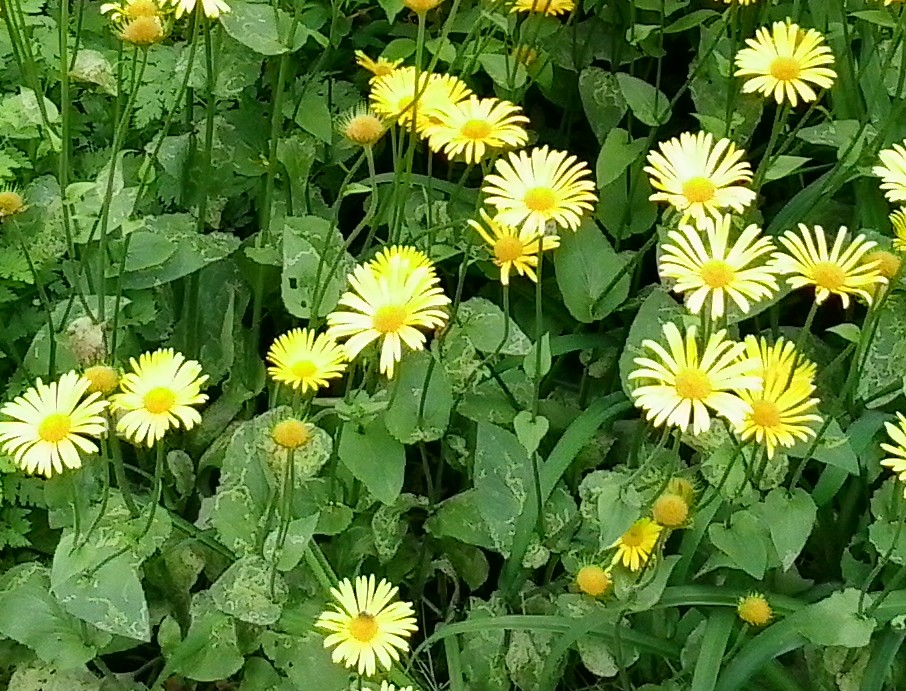
Native to woodlands of Europe, North Africa, and temperature Asia, this short-lived herbaceous perennial is a member of the aster family, Asteraceae, that also includes sunflower, yarrow, and lettuce. The plants grow up to 1-2′ tall and form an attractive clump of bright green, triangular or heart-shaped leaves. In early spring the 1-2″ wide lemon yellow flowerheads appear singly well above the foliage. The plants languish in heat and humidity so are not good garden plants for the South and even in the North the plants tend to go dormant by mid-summer so other annuals or perennials must be arranged to cover up the bare spots. Roots need even moisture even when dormant and should be kept cool with mulch. Divide plants every 2-3 years to keep them vigorous. All parts of the plant are poisonous. Cultivars are available that differ in height, flower size, and color and are a good choice for woodland, shade, and rock gardens as well as planted in borders or containers. The flowers are good in the vase. The genus name, Doronicum, comes from the Arabic word doronigi, the Arabic name for the genus. The specific epithet, caucasicum, refers to distribution of the plant in the Caucasus.
Type: Herbaceous perennial
Bloom: Daisy-like yellow flowers, one-two inches across in spring
Size: 1-2’ H x 1’ W
Light: Full sun to part shade
Soil: Humusy, consistently moist, well-drained
Hardiness: Zones 4-7 (not heat or humidity tolerant)
Care: Mulch to keep roots cool in summer; divide every 2-3 yers to maintain vigor
Pests and Diseases: None of significance but susceptible to powdery mildew, root rot, Botrytis’ aphids, thrips and spider mites
Propagation: Seed, division in spring
Companion Plants: Spring bulbs especially Narcissus, tulips, scilla; Campanula glomerata, Brunnera, Phlox divaricata, Phlox subulata ‘Atropurpurea’, Mertensia virginica, Pulmonaria
Outstanding Selections:
‘Little Leo’ (semi-double 2″ wide flowerheads, 8-12″ H)
‘Magnificum’ ( 2-2.5” H)
‘Spring Beauty’ (large double flowers, 12” H)
